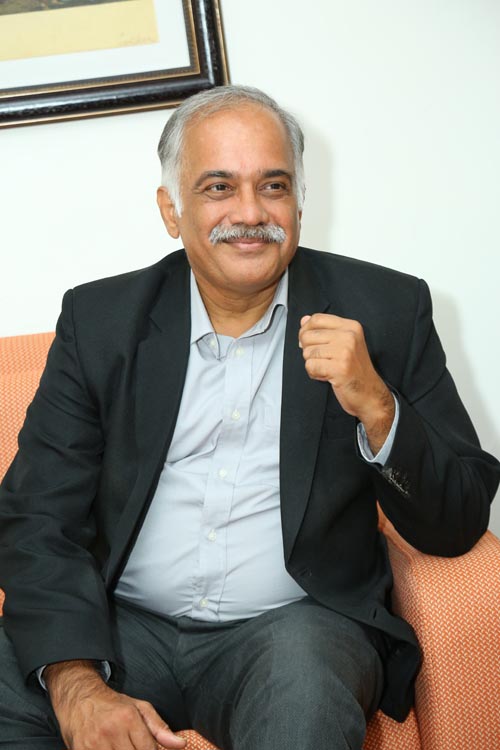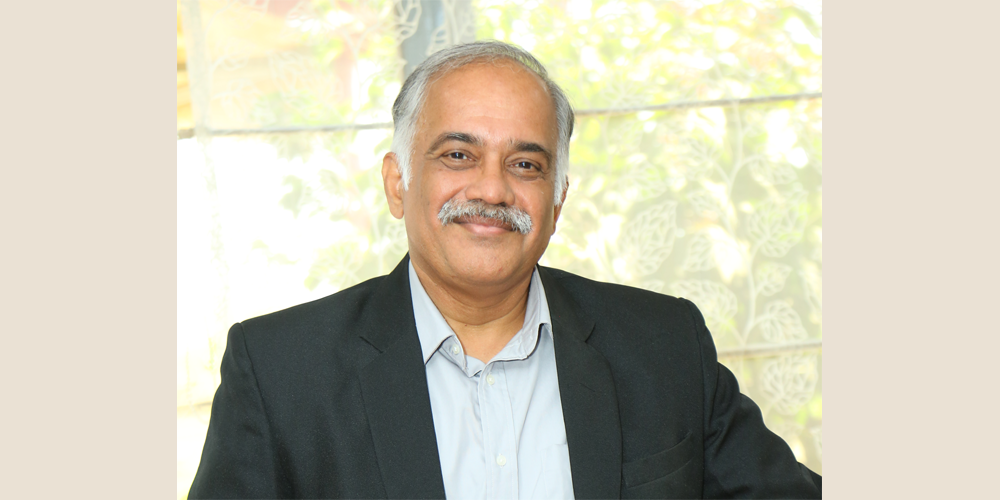India’s resilient reinsurer
The General Insurance Corporation of India (GIC), as formerly known, was originally established as a holding company for all nationalised general insurance companies and was simultaneously designated as India’s reinsurer. It successfully managed and developed strategies for public sector non-life insurance companies for nearly thirty years until the government opened the insurance market to private players in 2000. Subsequently, GIC successfully transformed its operations and scaled up as a reinsurer, showing its ability to adapt to evolving market conditions. As times changed, GIC Re worked diligently to evolve and establish itself as a globally competitive reinsurer. Now it has entered a new era, driven by the management’s unwavering efforts to redefine the business approach and vision for the national institution.
The Government of India nationalised 55 general insurance companies in 1972. General Insurance Corporation (GIC) was formed in the same year, and the government transferred all the nationalised general insurance companies under its control. A consolidation among the general insurance companies that followed created four non-life insurers: National Insurance, New India Assurance, Oriental Insurance and United India Insurance Company. GIC, as a holding company, played a big role in forming business strategies, designing products and setting a vision for the four public sector non-life insurers. GIC did the challenging work and greatly contributed to laying a foundation for India’s non-life insurance.
In October 2024, the International Credit Rating Agency, A.M. Best upgraded GIC Re’s credit rating to A- A – Excellent, which gives the company the advantage of being able to access and write good-quality international business, which would give it the geographical diversification to its portfolio.
When the Insurance Regulatory and Development Authority Act, 1999 (IRDAA) came into existence in April 2000, the General Insurance Business (Nationalisation) Act was also amended. That coincided with the opening of the insurance business to private entry, making GIC a reinsurer in the Indian market. A subsequent government notification reversed the ownership of the four general insurance companies to the government. General Insurance Corporation continued to be a public sector institution and rebranded as GIC Re with a mandate for the reinsurance business alone. Reinsurance plays a catalytic role in stabilising the insurers’ burden by sharing a portion of the risk. That is the fundamental principle of the reinsurance business. GIC Re has focused on reinsurance since 2000, with the privilege of obligatory cessions. There has been a consistent reduction in the obligatory cession from 20 per cent to the current four per cent. GIC Re, still the only Indian reinsurer, naturally remains a dominant player in the Indian reinsurance market. A lean and nimble organisation with 475 employees, GIC Re has first hand knowledge of the Indian and global insurance markets due to its wide-reaching footprint as a reinsurer. With highly experienced management refined through its legacy, the organisation maintains a diversified business profile, strong liquidity, and a satisfactory solvency position. GIC Re has embarked on a new journey of growth with profitability, and the result has been excellent, says Ramaswamy Narayanan, Chairman and Managing Director. This journey is now set on a smooth road after surmounting challenging times during the pandemic years and a period of aberration. The company took

GIC Re’s temporary top-line degrowth, if it is due to business consolidation, is not a cause of concern because the management has decided that every contract it enters into must be profitable over a period. Stronger fundamentals and a consequent better rating will naturally attract new business in the days ahead.
corrective actions after facing difficulties after its equity share listing on stock exchanges in 2017, compounded by the
challenges presented by COVID-19 that followed. A team with deep domain knowledge identified the institution’s weaknesses and risks, effectively shielding GIC Re from the stresses experienced since 2018, particularly from long-tail contracts that heavily impacted its bottom line, leading to a significant decline in stock prices and disappointment among investors, including shareholding employees.
However, management spotted an opportunity for correction and a chance to reposition its business strategy. The GIC Re team took the time to reflect on their actions and realised the critical need for corrective measures to enhance the institution’s competitiveness. “We looked internally and corrected ourselves. Now we can say our business growth assures better profitability due to our cautious approach, prudent planning and careful due diligence,” says Ramaswamy Narayanan. The message is clear: GIC Re will not hastily chase any unprofitable business, even though the team is aware that risk in underwriting is unpredictable. A systematic approach where underwriters conduct due diligence before the GIC Re team takes the final call drastically curtails the possibilities of losses. The team evaluates the risks associated with the business awaiting underwriting, considers immediate prospects, and reviews previous experiences before underwriting assets. The legacy of certain business segments provides deep insight into the trends of profit and loss consistency, which is essential for making underwriting decisions.
Now, there is a system by which the underwriters do the due diligence before the GIC Re team takes the final call. The team understands the risks involved in the business that comes with underwriting. The team looks at the immediate prospects and reviews the earlier experience before underwriting the assets.
In the short term, some businesses may incur losses. Underwriters are prepared for it. However, that should not mean
those businesses would consistently eat into the profit. If a particular business shows persistent losses over three to five years, it is sensible to shed the business from the portfolio. This is one of the strategies GIC Re has adopted to regain its financial strength and sustainability. Rather than incurring bottom-line losses while pursuing significant top-line growth, it is preferable to reduce growth in exchange for net profits from core business operations, Ramaswamy Narayanan believes. This requires a calculated business approach and prudent strategy, he asserts. GIC Re, for instance, has reduced its exposure to agriculture while increasing its focus on the fire, health, and motor insurance sectors. “Today, we write business not to inflate our volume and falsely claim that our topline is booming. Ultimately, we must achieve a surplus that justifies our business prudence,” he says. As a reinsurer with a 53-year history, GIC Re possesses in-depth market knowledge, relationships and huge data on claim history. The company understands the causes of claims and vulnerabilities through empirical data and recognises how each business segment contributes to the bottom line. If an insurer realises that a specific treaty is unlikely to be profitable, it would be imprudent to pursue that line of business. “We have adopted this policy and seen a spectacular result,” he adds. In January 2025, CARE Ratings reaffirmed its AAA rating for GIC Re, highlighting the public sector reinsurer’s strengths, including its government ownership and strategic importance as the dominant and sole Indian reinsurer. GIC Re captures around 35 per cent of India’s current reinsurance business with a leadership position. CARE’s rating noted the organisation’s experienced management, diversified business profile, comfortable liquidity, and solvency position. Moreover, while CARE acknowledged the company’s modest premium growth and underwriting performance for the financial year 2023-24 and the first half of the financial year 2024-25, it pointed out that GIC Re’s healthy investments support profitability. Its ability to grow the business where it hardly faces any competition and improve underwriting performance are important determinants, enough to enthuse analysts and insurers.
Institutional investors and investment analysts are candid about the determinants impacting business quality and financial fundamentals. The top management of GIC Re frequently interacts with research analysts. These interactions have provided valuable insights that help the management understand what investors consider when evaluating investment worthiness. A mature management team knows appropriate ways to impress analysts by redefining business and prudent financial management. This approach requires addressing the legacy issues that have harmed the company’s financial fundamentals for some time, if not for a long time.
“We looked internally and corrected ourselves. Our business growth will ensure better profitability. We are cautious about accumulating unprofitable business, understanding that sound knowledge of historical performance is essential to decide on underwriting. Today, we write business not to inflate our business volumes but to ensure a surplus that justifies our prudence.”

